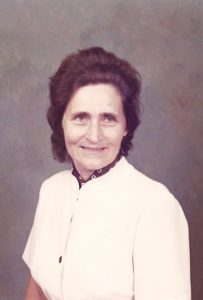
The Communist Revolution stripped Elisabeth’s family of their citizenship, home and possessions. They resettled in Landskrone, Molotschna colony, where they barely survived the induced starvation of 1933. Her father and 3 brothers were sent to concentration camps. Elisabeth was chosen to attend medical school in Halbstadt; then WWII broke out. As the Germans advanced, her youngest brother was arrested and killed. Elisabeth cried out to God. Under German occupation, churches reopened, and she walked 18 km to a service in Gnadenheim, where she heard Psalm 95:7–8 and accepted Jesus as Saviour. Elisabeth went to Berlin to complete medical studies. There she spent many nights in an air raid shelter – praying for safety. After the war, Elisabeth reunited with her mom and sisters near Hamburg, Germany, where she met Hans. Elisabeth and Hans immigrated to Fernheim, Paraguay, on an MCC-sponsored refugee ship. They lost their first son at 3 weeks. Elisabeth’s health necessitated a change in climate, and in 1954, the family arrived in Canada with $5. At Zion MB, Elisabeth arranged picnics and played goaltender. At Kitchener MB, she organized singing in the German service. After retiring, Elisabeth and Hans visited relatives in Germany and their former home in Paraguay. They spent several winters ministering in Chihuahua, Mexico. Elisabeth loved playing tag, feeding ducks or hunting frogs with her grandchildren. The annual family camping trip is a 28-year tradition. Elisabeth wrote her story of God’s faithfulness. After her stroke July 5, the family gathered around her every evening to sing hymns and express their love.